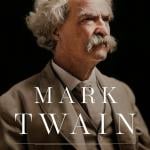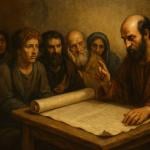GODSTUFF:
ARE WE READY FOR A MORMON PRESIDENT? Mitt’s Image Problem (And it’s not his hair)
As a teenager, spiritually educated in the Southern Baptist church and conservative evangelical Christian school I attended, I learned that the Church of Jesus Christ of Latter-day Saints was a cult, and that its members, the Mormons, most certainly were not Christians.
I heard repeatedly in lectures from Bible teachers briefing us on the LDS church’s strange theological beliefs and from church folk training us how to counter Mormon evangelistic efforts with our own that Mormonism was a threat to “real Christians.” And I can recall vividly reading the book The Kingdom of the Cults, either for a Sunday school or actual school assignment.
Chapter Six: The Mormons.
The book outlined various Mormon “false teachings,” the most egregious (at the time) to my teenage mind being the addition of other literature outside the Bible as spiritually authoritative. The Book of Mormon, Doctrine and Covenants and The Pearl of Great Price — the trio of books regarded as sacred in the LDS church in addition to the Bible — clearly violate, I was taught, the biblical prohibition against adding anything to or taking anything away from biblical Scripture.
Now I don’t think the LDS church is a cult. Nor do I believe Mormons are a threat to Christianity, true or otherwise. My impression of LDS church members is overall a positive one. They are, in my experience, largely a devout, accomplished, polite people.
The fear-based education I received about the Mormon menace didn’t take. And while I don’t buy what the LDS church is selling either, I have enough historical perspective to realize that most often the difference between a cult and a religion is point of view.
All religious beliefs are equally weird. How weird is in the eye of the beholder.
So what happens when the beholder is a voter?
Mitt Romney, the former governor of Massachusetts, is a Mormon. He is also a favorite among the would-be Republican presidential candidates.
Of late, Romney’s Mormonism has become a political volleyball and I’m certain, as the 2008 election draws nigh, his beliefs and identity as a member of the LDS — a “bishop,” actually, which is the equivalent of a congregational “pastor” in Protestant circles — will be thoroughly scrutinized.
Last year, a Gallup poll indicated that 66 percent of Americans are not “ready” for a Mormon president, and an L.A. Times/Bloomberg poll found that 37 percent of voters said they would not cast their ballot for a Mormon presidential candidate.
Romney insists his church, which is hierarchical and headed by one man — the “president and prophet” in Salt Lake City who receives ongoing revelations from God — doesn’t instruct him in one way or another in political matters.
Forty-some years ago, John Fitzgerald Kennedy said basically the same thing about his Roman Catholicism, hoping to allay fears that the White House would be reporting to the Vatican.
Were Romney to become the first Mormon president of the United States, I’m doubtful the executive branch would be taking orders from Salt Lake City. That’s a fear as baseless now as it was in 1960.
Still, evangelical Christians make up about a quarter of the voting public. And neither Romney nor any other candidate, no matter how otherwise appealing, will be able to sway many evangelical hearts to cut Mormons a break when it comes to doctrine.
Romney’s greatest hurdle may be the overall impression many Americans have of Mormonism in general. I’d describe it as a wariness of the weirdness.
When Gallup polled Americans in February, 46 percent said they had an “unfavorable” impression of Mormonism. When asked what first comes to mind when they think of the LDS church, the No. 1 answer was polygamy. Other answers in the top 10 were “door-to-door evangelizing,” “weird beliefs” and “big families.”
No matter how many times church leaders repeat the fact that the LDS church outlawed polygamy more than a century ago, the idea that all Mormons — not just a few creepy ones in desert compounds — practice or condone multiple marriage seems to stick. (Thank you HBO and “Big Love,” even with its disclaimers.)
Some Romney detractors try to build their case (for a Mormon cabal) by mentioning that his great-grandfather practiced polygamy. Well, my great-grandfather may have been a pig farmer, but I’m not hiding any swine in the backyard.
While the doctrinal differences between Mormonism and traditional Christianity are immovable stumbling blocks for many evangelical voters, the majority of Americans don’t cast their ballots in favor of or in protest against a candidate’s theology.
Morals, ethics and character, or the appearance thereof, however, are a different story.
Is the candidate a good man (or woman)? Is he or she trustworthy? Smart? Ethical? Is he pro-family (whatever that means)? Does he or she walk the talk or live hypocritically?
In the 2004 general election, 22 percent of voters said the most important issue for them was “moral values,” (and of those, 80 percent voted for George W. Bush).
Romney wouldn’t get my vote because of his political ideology, but his religious beliefs wouldn’t give me pause.
A churchgoing, clean-living, non-cussing, doesn’t-even-drink-coffee Mormon could hardly be any worse for this country than a warmongering Methodist or a Southern Baptist with a hyperactive libido.















